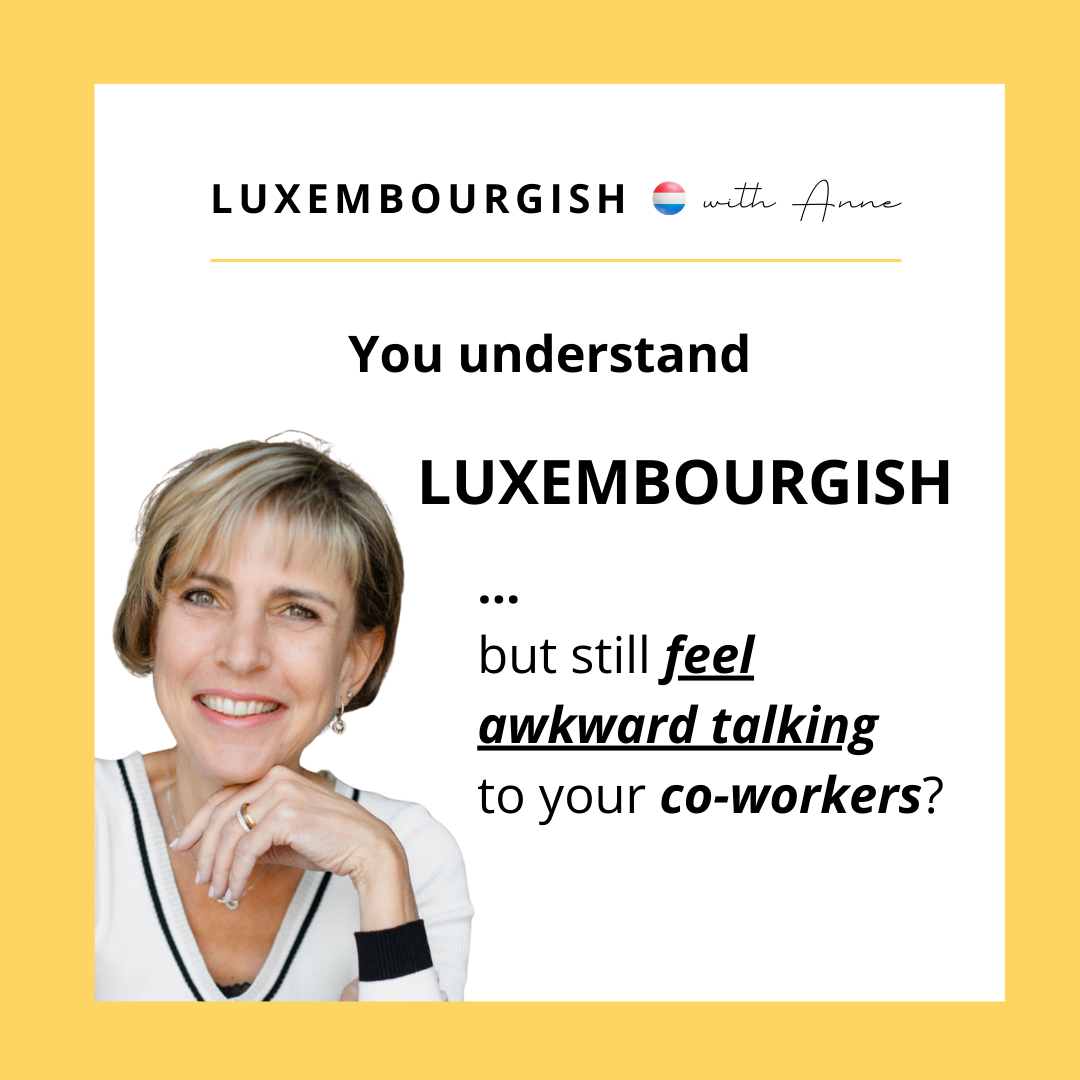Today I will answer a question I received by email from a mother of a three year old child :
“My husband and I decided to introduce Luxembourgish as a third language to our bilingual child. My husband and I speak Italian and English with our kid. Neither of us speak Luxembourgish, but we didn’t see any reason to restrict any further learning. We follow the One Parent, One Language approach with our child. From birth I have been speaking to my boy in English and my husband has been speaking to him in Italian. It has been a natural process for him and we wanted to introduce Luxembourgish as a third language in the same way. Our boy will soon be four and we would like him to start now but we don’t want “lessons” or group classes as such.
At first I started calling up language schools. However, many of whom I spoke with were teachers who hadn’t worked with children so young. They were more concerned about the results my son would have achieved after so many sessions and right away, I knew I didn’t want that. What is your advise as a coach?”
First of all thank you for this great question. I have a lot to say on this subject. Actually I am an experienced teacher in teaching Luxembourgish to toddlers and young children. This is what I used to do on my previous role when I ran the “Babbelschoul”.
And here is my approach to this large subject :
The best way to teach a child a new language is by NOT teaching
The standard advise does not apply to young kids. Language learning for children as a pedagogy is very different than for adults. As adults we are self-directed learners, we create our own motivation we try to hold ourselves accountable. But children can’t do none of those things.
When children are so young they can’t be expected to sit and concentrate for long so it is useless to “teach” them. If you put them in a language class 45 minutes or 1 hour 1 or 2 times a week, they won’t learn to speak Luxembourgish. That doesn’t happen like that. The idea of formal language lessons for young children up to the age of around 8 is a non-starter.
So it is essential to find something that is fun, that engages them, that makes the language a bit part of their life. And the best resources for this are people and books.
In my experience as a teacher for toddlers I found the best way to teach a child a new language is by not teaching, but by having someone around on a regular basis speaking to them in that language. I experienced first-hand how just by spending time with children playing, talking and doing activities with them, they naturally learned Luxembourgish. It is through two-way communication that children learn best a language.
Here are my tips:
Hire a Nanny
One of the most effective ways is to hire a nanny or to bring in a child minder – so someone who is a native speaker and who would come 3-4 days a week for a couple of hours at a time at your place. You can find out more information about childcare in your own house in Luxembourg here.
By having someone there on a daily basis playing together, doing activities, making him repeat words and spending time with your child, he or she is able to learn in the most natural way and pick up on not only the language, but also the accent and the way they speak. Of course you have to consider this on the long term. Don’t expect your child to speak Luxembourgish within 1 year. That’s not realistic. Try to consider a period of 2 or 3 years and keep in mind is that it takes time to young children to learn to speak fluently a third a language.
Now my student mentioned the OPOL theory which is a theory that states that a child will relate a new language to a person because their brain is not enough developed to consider it as an abstract thing. So when very young children learn to speak multiple languages, they may well know HOW to speak 2 or more languages but they might not realise that’s what they are doing.
Therefore the prerequisite is that this person speaks to your children ONLY in Luxembourgish from the very first day.
If you are lucky you can find a person who understands the language your child speaks. This is helpful because then this person is able to understand what your child is trying to say. But instead of responding in his language she/he would repeat what he has said in Luxembourgish and responds to him in Luxembourgish. This way there is no confusion.
Bilingual Day centre or Kindergarten (Maison Relais / Crèche)
If you have the option of putting your child in a crèche (if your child is under the age of 4) or in a Maison Relais (day centres that take school children between the ages of four until 12, this will be a perfect support for him to develop his language skills.
Since September 2017 all crèches and other structures (private or public) providing services under the “chèque service accueil” voucher scheme have to communicate with the children in Luxembourgish and in French. This way the children will be exposed to more than one language on a daily basis.
Learn the language with your child
Another great way to teach your child Luxembourgish is to learn together as a family. Making it a fun family experience can really motivate your children to want to learn it. Children tend to imitate their parents and if they see that you enjoy learning Luxembourgish, they are more likely to be interested in learning too.
At the top of that, you can start to add songs in Luxembourgish, but remember the more interaction you can have the better.
The next step is then to start checking their understanding by asking “jo” oder “nee”. So is that correct or not? And your child will quickly be familiar to the jo oder nee. What you can do is to ask them in Luxembourgish when you are outside, in the street or in the park: Ass dat e Bam? (is that a tree?) Jo oder nee? And in return your child can ask you a question. That’s a way of making the learning process funny but interactive.
Now, whichever way you choose, the most important thing is to make it a fun experience. Children are more likely to learn when enjoying the experience, and are more likely to want to continue.
Or you may want to check out the Luxembourgish Online School for kids:
BABBELSCHOUL
A fun, interactive way to introduce your little ones to the Luxembourgish language. Babbelschoul brings the joy of learning right into your home with our vibrant online classes designed for children aged 3-5. 📚✨
Led by Anne and her team, our classes are not just lessons—they’re adventures! Mila, our adorable caterpillar mascot, will guide your kids through a world of colors, numbers, and much more, making learning an exciting journey. 🐛
Why choose Babbelschoul?
👧 For kids aged 3-5
🌍 Interactive and engaging online format
👩🏫 Native Luxembourgish tutors
🎉 Fun learning with games, songs, and crafts
Enroll your child in a learning adventure they’ll love. Let’s make language learning a joyous part of their childhood. Join the Babbelschoul family today! 🐛
That is a very brief summary of which is a huge topic. But I hope that this was helpful.
Wishing you a successful trilingual family journey!




